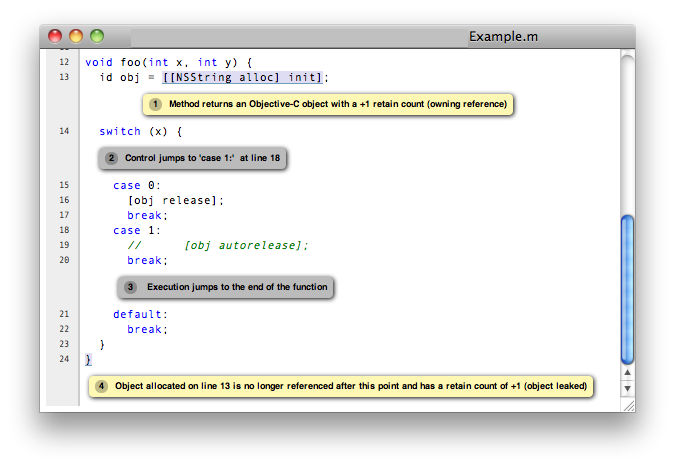In addition to text output on the console:
clang++ --analyze -Xanalyzer -analyzer-output=text main.cpp
You can get the full html output:
clang++ --analyze -Xanalyzer -analyzer-output=html -o html-dir main.cpp
Additionally, you can select specific checkers to enable. This page lists available checks. For example, you can enable all of the C++ checks in the alpha group using the flags:
-Xanalyzer -analyzer-checker=alpha.cplusplus
http://coliru.stacked-crooked.com/a/7746c4004704d4a7
main.cpp:5:1: warning: Potential leak of memory pointed to by 'x'
}
^
main.cpp:4:12: note: Memory is allocated
int *x = new int;
^~~~~~~
main.cpp:5:1: note: Potential leak of memory pointed to by 'x'
}
^
Apparently the front end exposes
-analyzer-config<Option Name>=<Value>
E.g.
-analyzer-config -analyzer-checker=alpha.cplusplus
which might be better supported than -Xanalyzer and may be getting extended to support options to individual checkers: http://lists.cs.uiuc.edu/pipermail/cfe-dev/2014-October/039552.html
